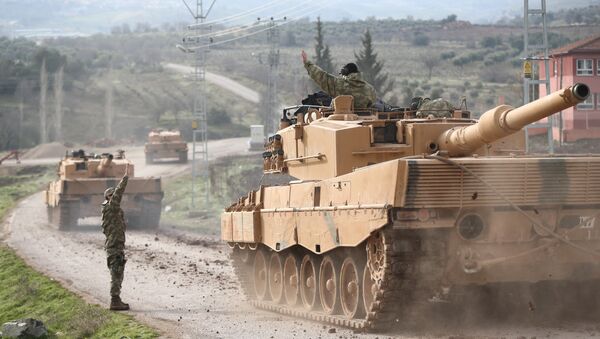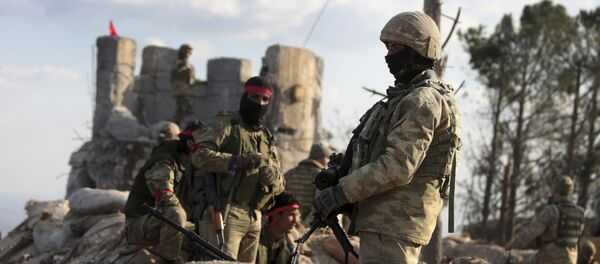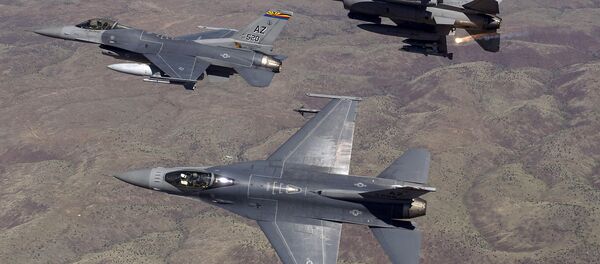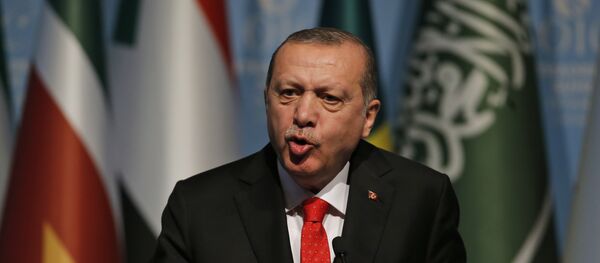Turkey has run out of patience, says Huseyin Kocabiyik, a Turkish parliamentarian from the ruling Justice and Development Party (AKP) and member of the parliamentary Commission on National Defense, commenting on tensions simmering between Ankara and Washington over the Syrian Kurds.
US Secretary of State Rex Tillerson has signaled Washington's willingness to address the issue during his upcoming visit to Turkey this week.
"It can be presumed that this time, Turkey will openly express its views to the US Secretary of State and US representatives who will visit Ankara," Kocabiyik told Sputnik Turkey. "As I understand it, Turkey intends to tell the US the following: 'If we are allies, if we are cooperating within the framework of NATO, then you should behave accordingly. Otherwise, we disclaim the responsibility for events and situations that will occur in the future.'"
Turkish Ties With the US 'are at a Very Critical Point'
Earlier, Turkish Foreign Minister Mevlut Cavusoglu told reporters on the sidelines of the Turkish-African summit that "ties with the US are at a very critical point."
"We will either fix these relations or they will break completely," he said, as quoted by Daily Sabah.
"The Turkish president has recently issued a statement that the US must leave the territory of Manbij, which should be handed over to its original owners," Kocabiyik said. "I believe that during the talks [with Tillerson], the Turkish side will raise the issue of inadmissibility of the US cooperation with the PYD (the Kurdish Democratic Union Party), and military assistance to the Kurds; [Turkey will] also reiterate its demand to return the weapons supplied by the Americans to the YPG back."
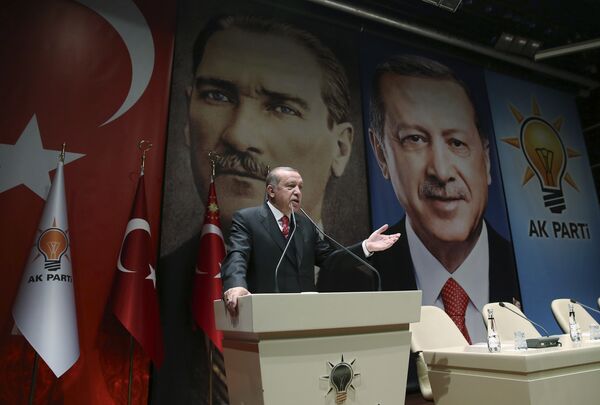
US-Turkish Direct Conflict Cannot be Excluded
According to the parliamentarian, it is hard to predict the outcome of the US-Turkish meeting. In any event, it will produce concrete results, either positive or negative, he believes.
But what if Washington fails to meet Ankara's expectations?
"In response to the threat to Turkey voiced by the American general — 'in case of an attack, we will strike back', Turkish President Erdogan said, 'Obviously they have clearly never gotten an 'Ottoman slap' in their lives.' (The Ottoman slap is an offensive, sometimes lethal, bare handed attack which was used by soldiers in the Ottoman Army.) The president's words are symbolic and have a very deep meaning. Turkey has expressed its unequivocal determination to eliminate the threat to its national security," the Turkish parliamentarian emphasized.
He does not exclude the possibility of a direct confrontation between the US and Turkey.
"Of course, this is an undesirable scenario for Turkey, but let no one forget that moral superiority will be on the side of Turkey," the politician underscored. "We are talking about US actions on a foreign territory which threatens the territorial integrity of the countries of the region, whom the US calls friends and allies."
US Fails to Keep Its Promises Given to Turkey
Babis pointed out that the US and its Kurdish allies owe much of their success on the ground, in particular, in Manbij, to the Kurecik radar base as well as Incirlik air base in Turkey. "Therefore, if the US does not keep its promises, Turkey will be able to respond appropriately," the political analyst told Sputnik.
"The United States continues to link their support to the Kurdish self-defense units (YPG) with Daesh's [ISIS/ISIL] presence in the region," Babis said. "However, US President Donald Trump earlier issued a statement, which said that the area was completely cleared of Daesh militants. If this is the case, then the US should have left Syrian territory as soon as possible, but today we are seeing quite the opposite situation."
Indeed, speaking at Stanford University on January 17, Tillerson announced that the US is intended to stay in Syria even after Daesh is defeated, to ensure that "neither Iran nor [Syrian President] Bashar al-Assad take over areas" which had been liberated by the US-backed forces.
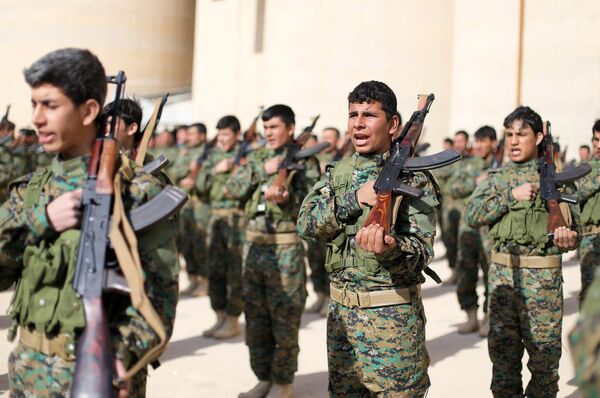
Euphrates Shield, Olive Branch Ops Add to Stability, Security
The political analyst also referred to the fact that the Pentagon is seeking to allocate almost $500 million to the Kurdish dominated SDF. Additionally, the US has signaled that Ankara's operation in Afrin undermines the US-led coalition's anti-Daesh efforts.
According to Babis, the situation is quite the opposite: The political analyst called attention to the fact that YPG is setting its own rules in territories predominantly inhabited by Arabs. As a result, new radical anti-YPG movements are emerging in the region, the analyst warned.
In this context, Turkey's Euphrates Shield and Olive Branch operations contribute to the stability of the region, he believes.
"After Trump assumed the presidency, America became 'bogged down in the swamp' in Syria and largely lost its power," the analyst opined, adding that the Manbij issue would become the litmus test for the upcoming US-Turkish talks.
Washington's Three Possible Scenarios for Manbij
He described three scenarios for further developments on the ground: "The first option is that the US would leave Manbij in exchange for guarantees of the inviolability of YPG positions in the territories east of the Euphrates."
Second, an interim administration could be established in Manbij, with the YPG playing the second fiddle. The third option, according to the analyst, would be the US attempting to bring Turkey and the YPG to one negotiating table.
"However, none of these possible steps on the part of the US would satisfy Turkey," he stressed. "Yet another possible option is to exchange bargaining chips between the parties. However, this course of events seems to be very unlikely."
The US-Turkish relationship became strained after the July 2016 coup attempt. Despite Ankara's repeated requests, Washington refused to extradite Fethullah Gülen, a Turkish preacher and alleged mastermind behind the July unrest. The US continued support to Syrian Kurdish militias and the pledge to create a "border force" in the SDF-held territories in northern Syria prompted Ankara to launch the Olive Branch operation, aimed at targeting the Kurds in Afrin, Manbij and all along the Syrian-Turkish border.
The views and opinions expressed by the contributors do not necessarily reflect those of Sputnik.

